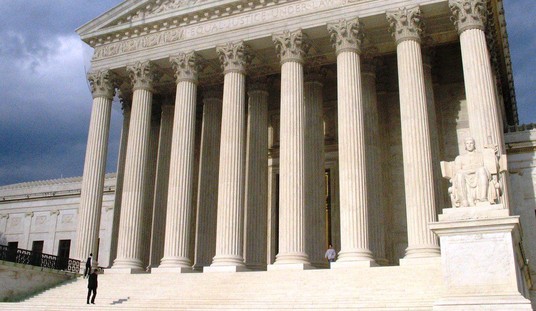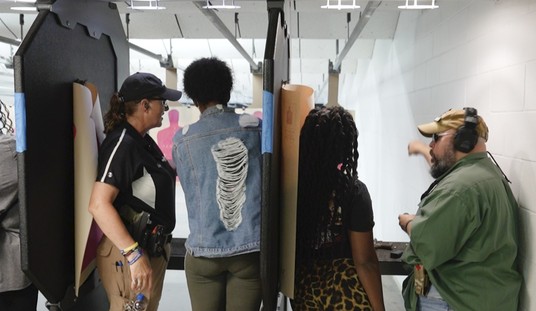I can respect anyone who tries to be a peacemaker, especially on a topic as volatile as guns and gun rights. It’s not easy, and it’s bound to open up to all kinds of vitriol. Both sides have passionate members who will not respect any side other than their own.
It seems a Canadian psychology professor who specializes in how people think has decided to take a swing at it.
So why do we continue to argue about this? One problem that I rarely see being discussed is that many of us have limited experience with guns and/or violence and have to rely on what we know from memory and from external source and we’re susceptible to cognitive biases.
Let’s look at things from the perspective of an average American gun owner. This might be you, people you know, family, etc. Most of these gun owners are very responsible, knowledgeable, and careful. They own firearms for sport and also for personal protection and in some cases, even run successful training courses for people to learn about gun safety. From the perspective of a responsible and passionate gun owner, it seems to be quite true that the problem is not guns per se but the bad people who use them to kill others. After all, if you are safe with your guns and all your friends and family are safe, law abiding gun owners too, then those examples will be the most available evidence for you to use in a decision. And so you base your judgements about gun violence on the this available evidence and decide that gun owners are safe. As a consequence, gun violence is not a problem of guns and their owners, but must be a problem of criminals with bad intentions. Forming this generalization is an example of the availability heuristic. It my not be entirely wrong, but it is a result of a cognitive bias.
But many people (and me also) are not gun owners. I do not own a gun but I feel safe at home. As violent crime rates decrease, the likelihood being a victim of a personal crime that a gun could prohibit is very small, Most people will never find themselves in this situation. In addition, my personal freedoms are not infringed by gun regulation and I too recognize that illegal guns are a problem. If I generalize from my experience, I may have difficulty understanding why people would need a gun in the first place whether for personal protection or for a vaguely defined “protection from tyranny”. From my perspective it’s far more sensible to focus on reducing the number of guns. After all, I don’t have one, I don’t believe I need one, so I generalize to assume that anyone who owns firearms might be suspect or irrationally fearful. Forming this generalization is also an example of the availability heuristic. It my not be entirely wrong, but it is a result of a cognitive bias.
In each case, we are relying on cognitive biases to infer things about others and about guns. These things and inferences may be stifling the debate
Not unreasonable so far. He left some things out, things he probably doesn’t understand are even “things,” but let’s allow him to continue.
Where does this psychologist think we should go from here?
How do we overcome this?
It’s not easy to overcome a bias, because these cognitive heuristics are deeply engrained and indeed arise as a necessary function of how the mind operates. They are adaptive and useful. But occasionally we need to override a bias.
Here are some proposals, but each involves taking the perspective of someone on the other side of this debate.
- Those of us on the left of the debate (liberals, proponents of gun regulations) should try to recognize that nearly all gun enthusiasts are safe, law abiding people who are responsible with their guns. Seen through their eyes, the problem lies with irresponsible gun owners. What’s more, the desire to place restrictions on their legally owned guns activates another cognitive bias known as the endowment effect in which people place high value on something that they already possess, the prospect of losing this is seen as aversive because it increases the feeling of uncertainty for the future.
- Those on the right (gun owners and enthusiasts) should consider the debate from the perspective of non gun owners and consider that proposals to regulate firearms are not attempts to seize or ban guns but rather attempts to address one aspect of the problem: the sheer number of guns in the US, any of which could potentially be used for illegal purposes. We’re not trying to ban guns, but rather to regulate them and encourage greater responsibility in their use.
And here’s where he lost me.
You see, he has missed one important factor, and that’s one of history.
A key reason why so many of us refuse to budge on the issue of guns is that we have. Time and time again, gun owners were asked to suck it up and accept new regulations to combat crime, and we did. We accepted registering our machine guns despite not being mobsters gunning down our opponents. We accepted no longer being able to get guns directly via mail. We accepted background checks at the time of purchase.
Guess what happened, though? Not only did crime not decrease, but anti-gunners also kept coming back with more demands. It wasn’t enough to register guns; they wanted to ban the sale of any new machine guns, thus driving the costs through the roof as the Law of Supply and Demand reared its ugly head. It wasn’t enough for background checks on new guns; they wanted us to have to get them on everything, thus created a kind of registration.
No matter what we did, they wanted more and more and more.
It’s with that history in mind that many of us won’t consider “the perspective of non-gun owners and consider that proposals to regulate firearms are not attempts to seize or ban guns but rather attempts to address one aspect of the problem: the sheer number of guns in the US, any of which could potentially be used for illegal purposes.”
Not only do we no longer care about their perspective, something else happened. As noted in the quote above, violent crime rates started dropping. But it wasn’t from any gun control law. No, there’s no corresponding drop in crime rates with new regulations. Instead, the crime rates started dropping when gun rights groups started fighting back and winning, thus expanding gun rights.
In other words, we can see actual data that tells us the problem isn’t more guns. With that, why should we care about the anti-gunner perspective? They’re wrong on every level and we have data to support that. More than that, though, we have the history that shows they won’t be satisfied with anything we did give them.
You’d think a professor with a scientific understanding of thinking would realize that his simplistic understanding is just that, simplistic. There’s not just one reason to oppose any group. This time, it’s no exception.







Join the conversation as a VIP Member